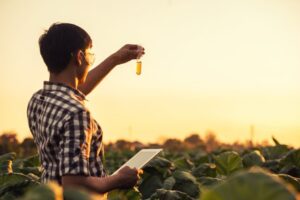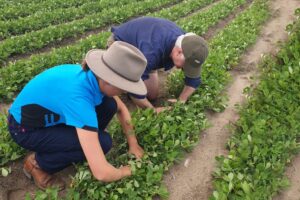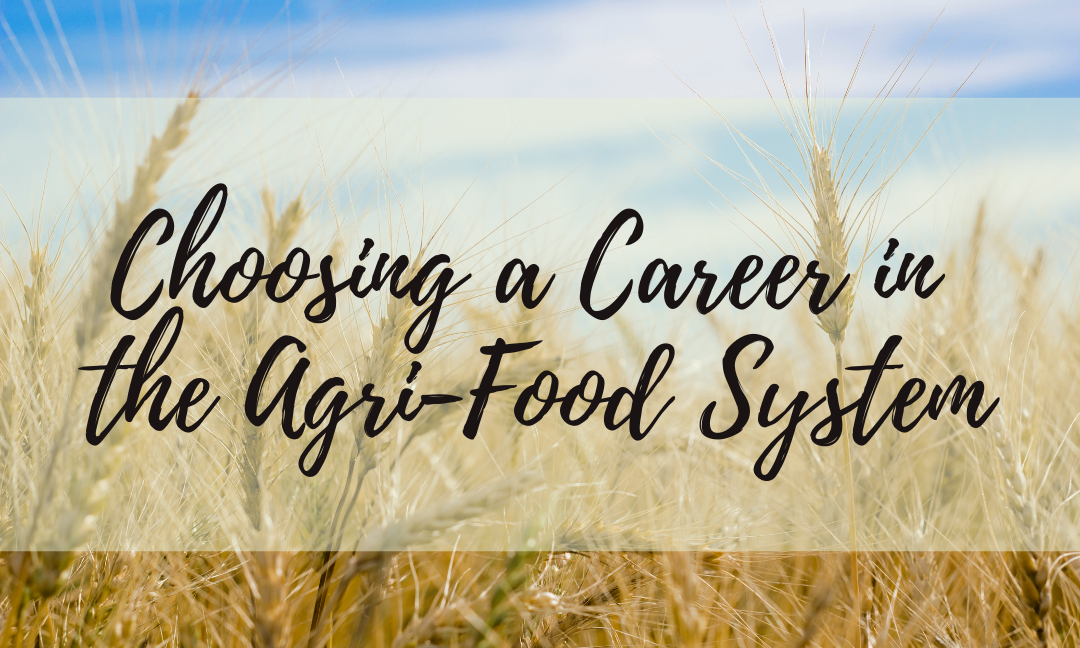Written by: Margarita Cherkashyna
The food system is a complex network of activities involving production, storage, processing, wholesale and consumption, involving many agricultural institutions. If you are passionate about nature, this post will help you find the most suitable path that focuses on the production and sustainability of agri-food. However, it’s important to remember that there are thousands of other career options in the food system and that this post outlines just a few of those possibilities.
Botanist
Since many activities involve agri-food career paths, everyone can find something that suits them and their interests. Botanics are the people who study and analyze plants. For example, phylogeny is the structure of plants, the study of relationships between different groups of organisms and their evolutionary development that causes growth. Also, they analyze how different plants interact with each other, what causes the change of the environment and how it affects the overall plant. Thus, people who like investigation and processing activities of the structure of an agri-culture should try this profession.
Soil and Plant Scientist 
This is another job that involves processing activities and analysis, but more into science because of the heavy involvement of chemical and physical compositions of soil. Plant scientists help decide which soil and environment are best for growing different plants, ultimately contributing to better food production. Some daily activities include taking samples of soil from the field and analyzing them under the microscope. Also, learning different types of soil and what involves it, pollution-related topics and other things that affect the plant.
Agricultural Manager
Such a manager helps farmers with the business organization and oversees the cultivation of crops. They can cooperate not only with small, local, privately owned farms but also big, industrialized farms. The duties can involve office-like and outdoors activities that include planning crop rotations, hairing people, maintaining farm equipment. The knowledge of biology/ecology and business studies can help to develop a skill to become an agricultural manager.
Water Conservationist
Water conservation professionals work anywhere with a natural water supply in places such as forests or farms with lakes, ponds, rivers, streams, etc. People in this position help provide water for everyone, including future generations. Also, they help to recognize and ensure the safety of water and the environment and prevent overflow and pollution. Farms aren’t the only places to work, however. Water conservation specialists work in national parks and large state territories.
Agricultural Food Scientist
Agricultural scientists experiment and analyze crops and food production methods. They can also use their discoveries to create new growing methods and improve the quantity and quality of food. Daily activities may include trips to various farms and laboratories to conduct experiments and collaborating with other scientists for improvement.
 Agronomist
Agronomist
Agronomists are focusing on growing and producing plants for practical use. Such a job requires a lot of science involved as well as critical thinking skills to perform expertise and innovate to increase yields. Usually, they work at farms, greenhouses or perform experiments in agriculture labs, but it all depends on the exact nature of their job. Day-to-day activities may involve travelling to different farms or food processing mills.
Horticulturalist
Last but not least, horticulturists use science to cultivate crops for society’s needs, such as food, medicinal ingredients, or for comfort and ornamental purposes. This job differs from agriculture manager primary through specialization with plant cultivation. However, it still requires a similar understanding of business and economics. Also, horticulturalists specialize in one area of cultivation such as field crops, indoor growing, fruiting plants etc. Day-to-day activities involve the ability to see current scientific technologies. Also, such a job can be certified through a large organization rather than traditional university-based education.
In conclusion, all of these agriculture-related jobs are focused on the production and development of agri-food products, which requires a specific college or university degree and various specializations in science, economics, and other areas related to agri-food careers. Many places around the country accept students that are interested in education for these careers, such as the University of Alberta, University of New Brunswick, Sault College, Lakeland College and others.
Content Sources:
https://www.hotcoursesabroad.com/study/training-degrees/canada/agriculture-courses/loc/32/cgory/a1-3/sin/ct/programs.html – website for educational places
https://www.environmentalscience.org/careers/agriculture-and-forestry – website for job information
https://www.ncplanforcollege.org/careers-in-agriculture/
https://www.bundabergnow.com/2020/09/08/school-holiday-job-program-agriculture-career/

